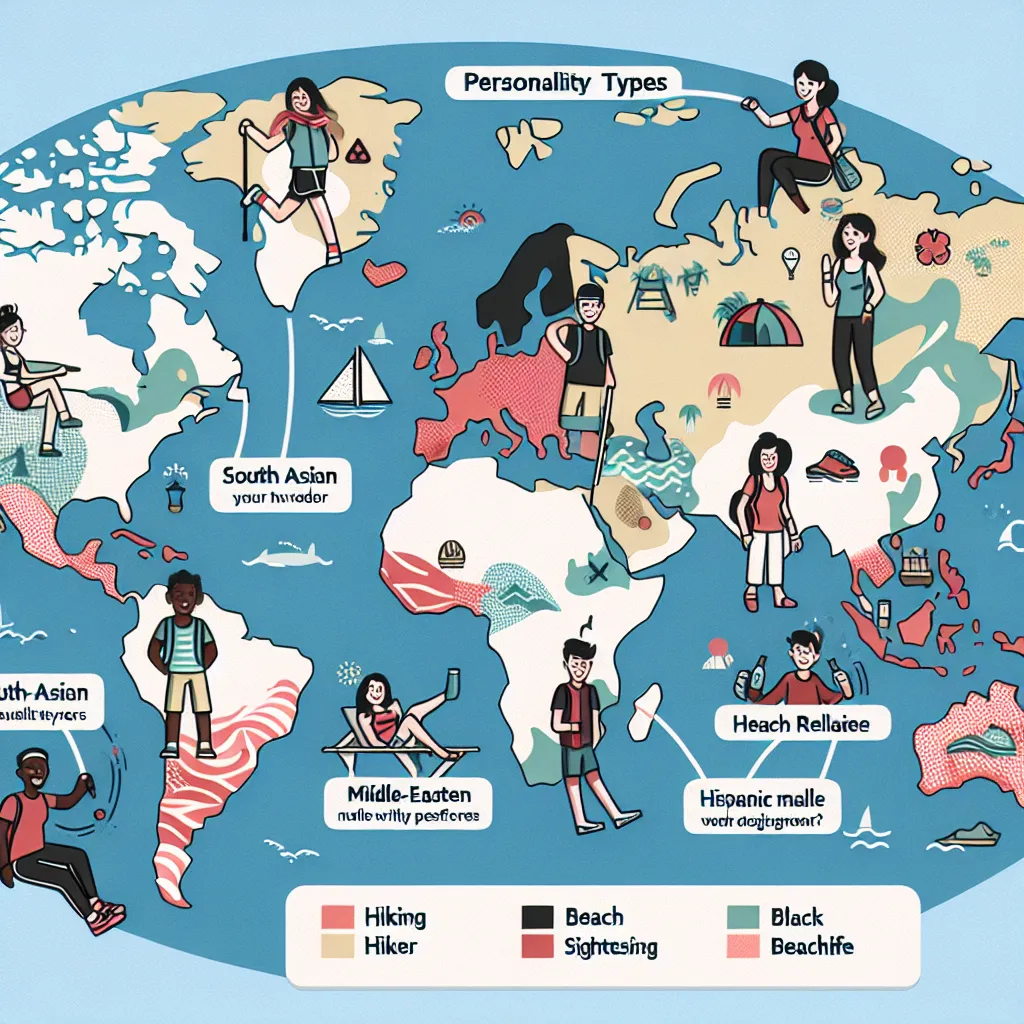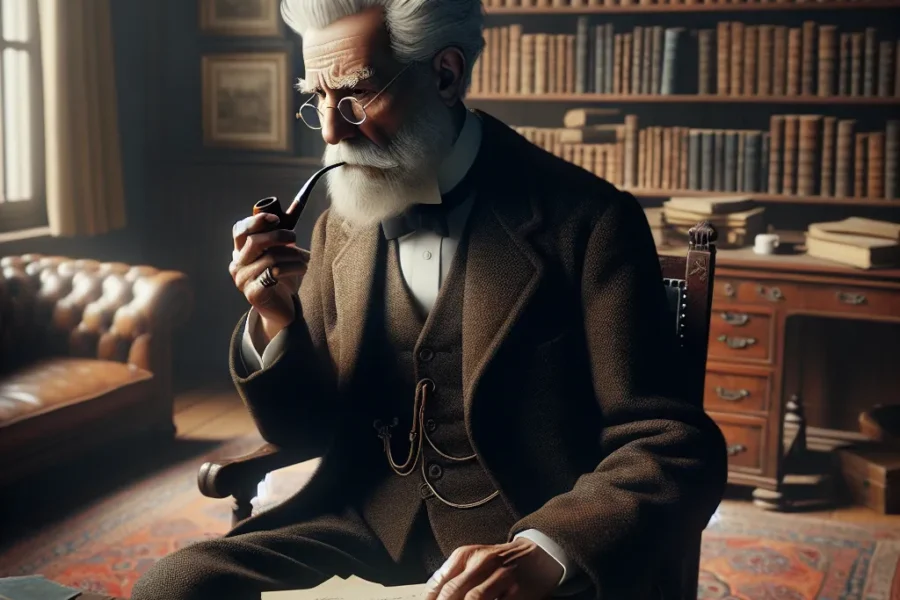Personality Types and Travel Preferences: A Global Perspective
Understanding personality types and travel preferences can provide valuable insights into the world of tourism and hospitality. This comprehensive exploration looks at how different personalities influence travel choices and behaviors around the globe.
The world is a vast tapestry of cultures, landscapes, and experiences, ripe for exploration. Yet, not all travelers seek the same thrills or comforts. People’s travel preferences are as diverse as their personalities. With the Myers-Briggs Type Indicator (MBTI) and other personality frameworks, we can predict travel choices.
The MBTI, a widely recognized personality assessment, categorizes individuals into 16 distinct personality types. These types influence decision-making, interaction with the environment, and lifestyle preferences, including travel.
Extraversion vs. Introversion
Extraversion and introversion refer to where individuals draw their energy from. Extraverts (E) tend to seek out social interactions and enjoy busy environments, making them more likely to engage in group travel, guided tours, and activities like festivals and crowded beaches. Popular travel destinations for extraverts include vibrant cities like New York, Rio de Janeiro, and Tokyo.
Conversely, introverts (I) require solitary time to recharge and often prefer quiet destinations where they can reflect and enjoy the surroundings at their own pace. They may be drawn to peaceful retreats, like a secluded cabin in the woods or off-the-beaten-path destinations such as the Icelandic countryside.
Sensing vs. Intuition
Sensing (S) individuals are detail-oriented and enjoy experiences that engage the senses. They favor destinations with rich history, cultural landmarks, and natural beauty they can see, touch, taste, and explore. These travelers might be drawn to destinations like Rome, with its historical ruins, or Thailand, known for its culinary delights.
On the other end, intuitive (N) types look for the abstract and future possibilities. They are attracted to travel that stimulates their imagination and offers novelty. Countries such as Japan, with its fusion of traditional culture and cutting-edge technology, appeal to the intuitive traveler’s desire for something unique and different.
Thinking vs. Feeling
Thinking (T) individuals make decisions based on logic. When traveling, they plan meticulously and look for efficiency and practicality. Destinations with a clear itinerary and organized attractions, such as Germany with its punctual transportation system and well-planned cities, suit thinking types well.
In contrast, feeling (F) personalities base their decisions on emotions. They seek travel that allows for interpersonal connection and experiences that resonate on a personal level. They might prefer volunteer travel or destinations known for their hospitable locals, like Ireland or New Zealand.
Judging vs. Perceiving
Judging (J) types appreciate structure and order in their travel plans. Preferring to have activities scheduled, they enjoy resorts, cruises, and package tours where the details are handled for them. Destinations that cater to this need for organization, such as all-inclusive resorts in the Caribbean, are particularly appealing to them.
Perceiving (P) personalities value flexibility and spontaneity, seeking out adventure and the freedom to change their plans on a whim. They might be attracted to destinations that allow for this liberty, such as a backpacking trip through Southeast Asia or a road trip across the United States.
Cultural Influences on Personality and Travel
Culture also plays a significant role in shaping travel preferences. In collectivist societies, group travel and family vacations might be more prevalent, reflecting the value placed on community and relationships. In contrast, individualist cultures may encourage solo travel or adventures that emphasize personal growth and independence.
Globalization and technological advancements have made the world more interconnected than ever. However, cultural nuances continue to influence how different societies approach travel. For example, in countries where work is highly valued, vacations might center around wellness and relaxation to counteract the stress of daily life.
Technological Impact on Travel by Personality Type
With the convenience of online travel planning and the rise of apps catering to all sorts of preferences, it’s never been easier for travelers to craft experiences that align with their personality types. Introverts might use technology to find secluded getaways, while extraverts may use social media to connect with travel groups or events at their destination.
Additionally, virtual reality (VR) technology allows all types of individuals to “try before they buy,” experiencing destinations virtually before committing to travel. This technological evolution in travel caters particularly well to the intuitive types who seek unique and novel experiences even in the planning stage of their trip.
The Role of Demographics in Travel Preferences
Demographics such as age, income, and education also influence travel choices. Millennials, often characterized by a desire for experiences over material possessions, have influenced travel trends with their preference for authentic and local travel experiences. Baby boomers, with more disposable income and time, may lean towards luxury travel or extended trips that allow for deep exploration.
Sustainable Travel Across Personality Types
An increasing awareness of environmental issues has led to a rise in sustainable travel options that attract travelers of all personality types. Eco-conscious travelers, regardless of their MBTI type, look for eco-lodges, green hotels, and tours that minimize their carbon footprint and support local communities.
Adventure vs. Relaxation
Adventure travel, a strong lure for perceiving types who crave spontaneity, includes activities like trekking, skydiving, and scuba diving. These travelers look for destinations like New Zealand or Costa Rica, renowned for their outdoor activities and adventure sports.
For those favoring relaxation, destinations such as the Maldives or the French Riviera offer luxury and tranquility. These options tend to attract judging types who appreciate a more controlled and serene travel environment.
The Future of Travel
Technology and increasing globalization will continue to reshape travel preferences. With big data and AI, the travel industry can tailor experiences to individual personalities, cultural backgrounds, and demographic profiles. As travelers seek more personalized journeys, the alignment between personality types and travel preferences is set to become even more pronounced.
In conclusion, the intersection of personality types and travel preferences offers a fascinating glimpse into the varied ways people choose to explore the world. From the bustling streets of metropolitan cities to the tranquility of remote landscapes, there is a destination and travel style for every personality. As we become more connected and aware of our own preferences, the future of travel will increasingly cater to these individual differences, making global exploration more accessible and enjoyable for everyone.



Leave a Comment